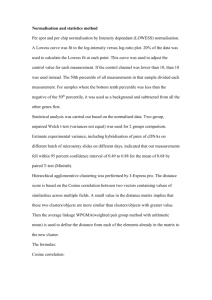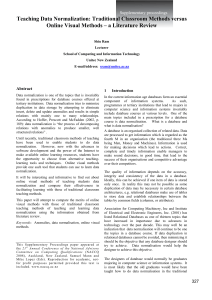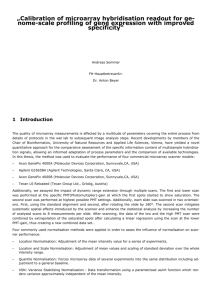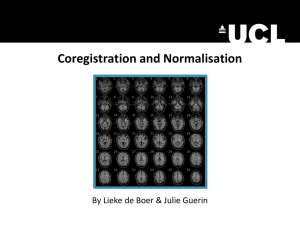Illegal Leisure (Revisited)
advertisement
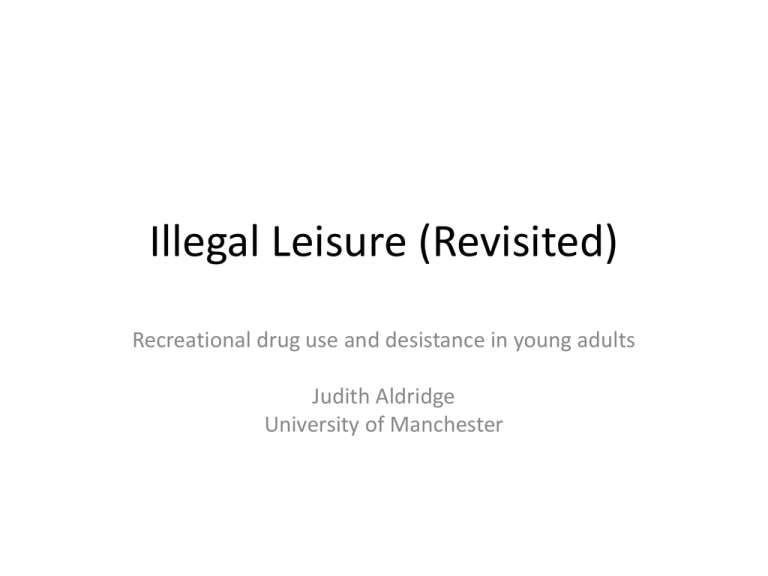
Illegal Leisure (Revisited) Recreational drug use and desistance in young adults Judith Aldridge University of Manchester Cultural accommodation of the illicit ‘Normalisation cannot be reduced to idea that it is normal to take drugs: that is both to oversimplify and overstate the case. We are concerned only with the spread of deviant activity and associated attitudes from the margins towards the centre of youth culture. So normalisation need not be concerned with absolutes: we are not even considering the possibility that most young people will become illicit drug users’. Key element: increasing acceptance of some kinds of drug taking, even by abstainers – unremarkable activity Normalisation timeline 1991-1995 Five annual surveys of ~800 young people from 14 to 18 years old 2004/5 1999 Follow up at age 22 Follow up at age 27/28 1998 2011 Publication of book Illegal Leisure Publication of book Illegal Leisure Revisited First comprehensive statement of the normalisation thesis Revisit the idea of normalisation after a decade in which levels of drug taking have fallen Mad, bad, sad & poor ‘Aging out’ of deviance? Our sample at age 28 • • • • • Employed full time Employed part time In education/training Full time caring Unemployed 77% 12% 12% 11% 1% • Living in own home • Living with parents • Living in rented 51% 20% 19% • Cohabiting • Married • Single 38% 27% 18% Drug use in our sample Age 18 Age 22 Age 27 Past year 53% 52% 34% Past month 35% 31% 20% Which drugs at 28? • Cannabis – 28% • Cocaine powder – 16% • Ecstasy – 9% Settling down • ‘It takes me about three or four days to recover from it as well. (laughs) You just get … I just get absolutely knackered by it now. So I think I get to the point now where I think, ‘Well is it really worth it for one day of running around like a dickhead? Is it worth it being shattered for like the next week?’ So I’d rather now have a few glasses of wine and get a bit tipsy, you know, do that rather than be worn out.’ • Female current drug user, age 28 Settling down • ‘The key turning point was me getting a full time job. When I went full-time, then it was just like a cut off point then, because I’d work, I’d be tired, and I’d come home. And that was it: I didn’t want to go out.’ • Male ex-user, age 28 Settling down • ‘She [his partner] didn’t take any drugs, she didn’t agree with it either. [Yeah.] She wasn’t bothered about me smoking pot, but anything else [sharp intake of breath], that’d have been a killer.’ • Male current drug user, age 28 Opportunistic use • ‘…When I’m out and with people that are doing it, but as far as myself going out to buy for my own use, then no, I don’t do that. I’m more a, I suppose, a blagger. Take it off other people [laughter].’ • Male, opportunistic user, age 28 Fitting drug taking around other priorities • ‘When I was 18, I was loving life. It was great. I was working hard, plenty of money, and having an absolute scream. Where now, you see, ten years on, my life is about providing. I provide a home, I’m looking after my son. My priorities have changed. So the way I have fund now is different to what it would be ten years ago.’ • Female current drug user, 28 years old Fitting drug taking around other priorities • “When you’re getting in from work anywhere between, well half six on a good night or you know, anything up to eight, nine o’clock really, if we’re busy at work. […] you’ve got the washing to do, your phone calls to make, tidying up, you know, you have all these things to do. And actually, when you’ve had a spliff it just makes you not wanna do anything.” • Female, current drug user, age 28 Implications • Ordinary, conforming citizens • More in common with moderate drinking than dependent drug use • Fit around priorities: children, jobs, partners • Usually their only ‘deviant’ activity • Riskiest aspect of drug taking is the fact of its illegality – Do not think themselves ‘above’ law, dislike legal risks • Worst outcome: fall out from criminal conviction: on families, jobs, relationships • Desistance: wanes throughout adulthood • My opinion: criminal convictions / custodial sentences – likely to have more unanticipated negative consequences than positive intended outcomes Any questions? Judith Aldridge Senior Lecturer Centre for Criminology and Criminal Justice (CCCJ) School of Law University of Manchester Judith.Aldridge@manchester.ac.uk

